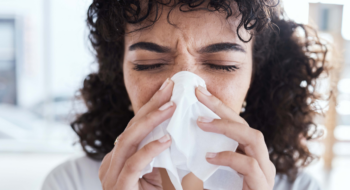In the years leading up to menopause, a woman’s levels of the reproductive hormones estrogen and progesterone decrease. As a result, some women experience bothersome symptoms, including:
- Hot flashes
- Night sweats
- Sleep disturbances
- Vaginal dryness
- Mood swings
Menopausal hormone therapy (MHT) can help relieve these symptoms while reducing your risk for bone loss and heart disease, says Dr. Gauri Dhir, an endocrinologist with Tidelands Health Endocrinology in Myrtle Beach.
“After menopause, women stop having periods and can no longer have children. They also may have symptoms that negatively impact their quality of life,” Dr. Dhir says. “MHT supplements the hormones your body has stopped making naturally and can help alleviate the symptoms.”
Hormone therapy is safe for most women, but Dr. Dhir says your unique health history should determine the specific type and dose.
Pros of Menopausal Hormone Therapy
While results vary, MHT may:
-
- Relieve hot flashes and night sweats
- Improve sleep
- Alleviate vaginal dryness and itching
- Make sex less painful
- Slow bone loss (osteoporosis)
Dr. Dhir says low-dose MHT does not offer much protection if you are already experiencing bone loss. However, the therapy can decrease the bone loss a woman may experience after menopause begins.
“For the most benefit, MHT should be given at the onset of menopause, which is usually around the age of 50. You should continue the therapy for up to five years and gradually taper off by your mid-50s,” Dr. Dhir says. “Doing so can help slow bone loss, decrease symptoms and prevent rapid weight gain and depression.”
Cons of Menopausal Hormone Therapy
MHT isn’t the right choice for some women. The treatment can increase your risk of developing blood clots, having a stroke and some types of cancer.
You shouldn’t take hormone therapy if you have a history of:
-
- Blood clots
- Breast, uterine or ovarian cancers
- Heart disease or heart attack
- Liver or gallbladder disease
- Stroke
- Unexplained vaginal bleeding
Some women have minor side effects including breast tenderness, fluid retention, monthly vaginal bleeding and mood swings.
“MHT is intended to relieve symptoms instead of causing new ones,” Dr. Dhir says. “If you have bothersome side effects, talk with your doctor about changing the dose or delivery system.”
Alternatives
If you can’t take MHT due to known risk factors, you have options, Dr. Dhir says.
“Antidepressants can help alleviate menopausal symptoms. Moderate exercise will also increase happy hormones such as serotonin and norepinephrine, which can be reduced in a woman whose low estrogen is low,” she says.

Dr. Gauri Dhir
Endocrinologist, Tidelands Health Endocrinology
Call to Schedule
Bio
Dr. Gauri Dhir is a board-certified physician who provides a range of care to treat diabetes, obesity, thyroid disorders, osteoporosis and adrenal and pituitary disorders.
Learn MoreMedical Education
Education
Punjabi Government College
Residency
Thomas Jefferson University Hospital, Internal Medicine
Internship
Yale – Griffin Hospital, Internal Medicine
Fellowship
Temple University, Endocrinology
Awards
- Board Certified – ABIM- Internal Medicine 2007
- Board Certified -ABIM- Endocrinology Diabetes and Metabolism 2012
- Endocrine Certification in Neck Ultrasounds (ECNU) 2014
- Certified Clinical Densitometry CCD -2017
- Certified Eversense Specialist – Implantable Sensors 2019
Meet the Expert
Dr. Gauri Dhir
Call to Schedule
Dr. Gauri Dhir is a board-certified physician who provides a range of care to treat diabetes, obesity, thyroid disorders, osteoporosis and adrenal and pituitary disorders.





